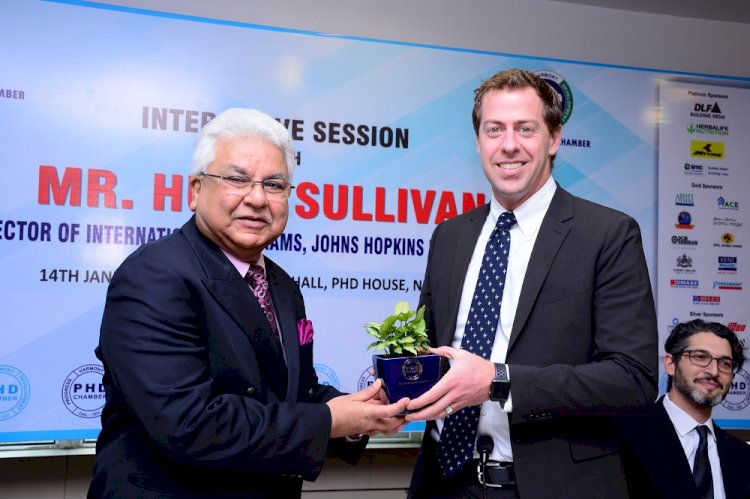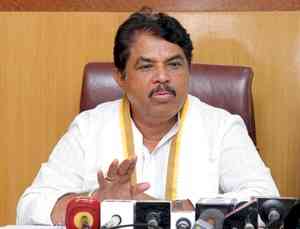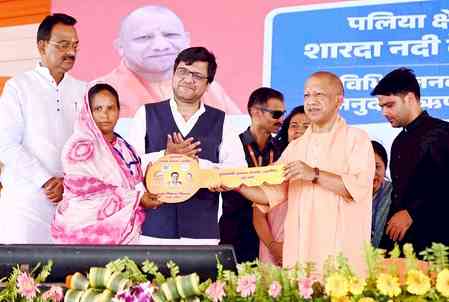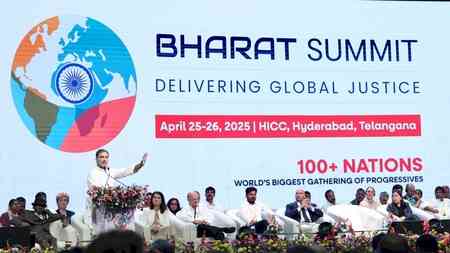Johns Hopkins University hopes for increased engagement with Indian researchers in the public health care sphere
University had set up a foundation in India, in association with a private company, to facilitate research work

New Delhi: The world’s first research university, the Johns Hopkins University in the United States, sees an increased engagement with India and Indian institutions in future.
Addressing an interactive session at PHD Chamber of Commerce and Industry on Tuesday, Mr Hugh Sullivan, Director International Programs, Johns Hopkins University said that the said University had set up a foundation in India, in association with a private company, to facilitate research work.
Cross-disciplinary initiatives and collaborations are the need of the hour as resources needed for such research useful for the humanity are so vast, Mr Sullivan said inviting the Indian research and academic bodies and business entities to team up with the University for collaborations.
Already, Indian students form the second biggest foreign student community on the campus and India is becoming an important research area for the students of the University, Mr Sullivan said. Ties with India are not new to Johns Hopkins University.
A student of the University had become the health minister of India in 1952, and at present, an alumnus of the University was the CEO of Ayushman Bharat, Mr Sullivan added.
Tracing the evolution of the Johns Hopkins as the world’s first research university, Mr Sullivan highlighted that the University focused on producing knowledge that is useful to the society as a whole as its driving force.
Today there are nine academic divisions at the University that include medical, nursing, advanced international studies, a music conservatory and a business school. We at the Johns Hopkins University are blurring the boundaries of disciplines to set up new centres of learning that are at the intersection of disciplines, said Mr Sullivan.
Citing an example, he pointed out that a new discipline was the study of engineering sciences to create new technologies for medical and health care.
Mr. Benjamin Link, Executive Manager, Johns Hopkins Alliance for a Healthier World which is one of the four signature initiatives in cross-disciplinary studies, outlined the multi-disciplinary research carried out by the centre in collaboration with faculties of different disciplines.
In 2012, these silo-busting initiatives were taken up by the University to bring together individual faculties from different disciplines to work together to solve problems.
The Alliance for a Healthier World will be hosting a workshop on air pollution in collaboration with International Institute for Health Management Research in Jaipur, said Mr Link. This is an example of the multi-disciplinary approach wherein faculties from different areas will brainstorm for ideas on how to reduce air pollution in Delhi, Mr Link added.
Mr. Pradeep Multani, Vice President, PHD Chamber, welcoming Mr Sullivan for the interactive session of the PHD Chamber said, In the changing scenario where Indian students were aspiring to become global citizens and joining the global workforce, there was a greater need for ease of access to global information and global education to Indian students. He said that the interaction with the director and his colleagues would provide an excellent opportunity for the PHD Chamber members to learn more about the education system in the United States.
Ms Rashmi Chopra, Co-Chairperson, International Affairs Committee for Americas, PHD Chamber was also present on the dais.
The interactive session was very well attended by the leading universities and research institutions as well such Shriram Institute for Industrial Research, JNU, IIFT, ICCSSR, Indian Energy Forum, Indian Spinal Injuries Centre, Techo India Group, Amity University, IILM, KLM International School, Muni International School, Global Institute of Commerce and Management among other educational institutions.


 cityairnews
cityairnews 










